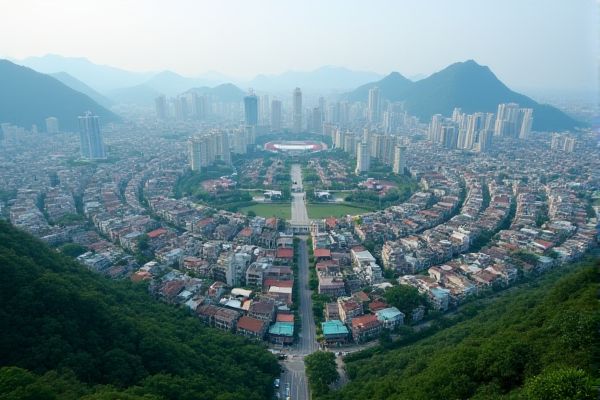
What to know as new resident in Vietnam: Local customs and etiquette. Vietnamese language basics. Currency and payment methods. Public transportation options. Healthcare facilities and insurance. Housing and rental market. Work visa and permits. Internet connectivity and providers. Dining etiquette and local cuisine. Safety and emergency contacts.
Local customs and etiquette.
In Vietnam, it is crucial to respect local customs and etiquette, which include greeting elders with a slight bow and handshake, dressing modestly, using both hands when giving or receiving gifts, and following strict dining etiquette such as waiting for the eldest to start eating and using chopsticks correctly. One should remember to remove shoes before entering homes, avoid loud and aggressive behavior, and always show respect to the elderly. For more details on these cultural practices, visit the Vietnam Travel website to learn about these important aspects of Vietnamese culture.
Vietnamese language basics.
To navigate Vietnam as a new resident, it's crucial to learn basic Vietnamese words and phrases, such as greetings (Xin chao - Hello), common expressions (Cam on - Thank you, Xin loi - Sorry), and essential verbs (di - to go, den - to come, lam - to make), which will help you comprehend and engage in daily conversations. You can explore more by visiting this informative site about Vietnamese Words and Phrases, which provides further insights to enrich your language skills and cultural understanding.
Currency and payment methods.
In Vietnam, the most common payment methods include cash, which is widely accepted, bank transfers through ATMs or online, and bank cards such as credit and debit cards. Additionally, payment apps like Momo, Viettel Pay, and Zalopay are popular, especially for QR Code Payments at various establishments.
Public transportation options.
In Vietnam, public transportation options include long buses, public buses, trains, and motorbikes. Public buses are affordable and widespread, with ticket prices ranging from $0.3 to $1.3, while long buses and trains offer connections between major cities. Motorbikes are convenient for short distances and have become the go-to mode for long-distance adventures. For more detailed information, Eviva Tour provides a comprehensive guide on using transportation in Vietnam, making travel planning and navigation easier for tourists and locals alike.
Healthcare facilities and insurance.
In Vietnam, public healthcare facilities are improving, covering various services including inborn diseases, STIs, pregnancy check-ups, and medications, though they may not meet Western standards. Private hospitals, particularly in major cities like Hanoi and Ho Chi Minh City, offer higher quality care with international standards and English-speaking staff, and health insurance options are available from both local and global providers. For more detailed insights, explore the comprehensive guide provided by Expat.com, which outlines the healthcare landscape in Vietnam.
Housing and rental market.
When renting an apartment in Vietnam, foreigners must ensure the lessor is either the property owner or authorized by the owner, and the property must meet legal standards, including having a valid certificate and not being subject to disputes or legal issues. It is also crucial to carefully review the lease contract and ensure all necessary documentation is in order. For detailed guidance on this process, you can visit the Renting Apartments In Vietnam Foreigner Guide provided by Vietlong Housing. Thoroughly understanding these aspects can help ensure a smooth rental experience in the vibrant and diverse landscape of Vietnam.
Work visa and permits.
To work in Vietnam, foreigners must obtain a work permit through their employer, meeting eligibility criteria such as being at least 18 years old, having the necessary qualifications and health, and not having a criminal record. The work permit is valid for up to two years and can be renewed once. It serves as a prerequisite for applying for a working visa or temporary residence card. For more information on these requirements, you can refer to the comprehensive details available on the Vietnam 2020 Amendment Law, which outlines the procedures for entry, exit, transit, and residence of foreigners in the country.
Internet connectivity and providers.
Vietnam offers robust internet connectivity with free public WiFi networks in urban centers and tourist areas, achieving download speeds of up to 100 Mbps. Major telecom providers like Viettel, MobiFone, and Vinaphone provide competitive prepaid SIM cards with 4G LTE speeds, ensuring extensive and reliable coverage across the country. For further insights and comprehensive guidance, visit the Vietnam's Internet Landscape to learn more about navigating the digital scene as a foreign traveler in 2024.
Dining etiquette and local cuisine.
When dining in Vietnam, it is crucial to follow local etiquette, such as waiting for the oldest person to start eating, passing dishes with both hands, not eating directly from shared dishes, and staying at the table until everyone finishes. Traditional Vietnamese meals typically include a variety of dishes like meat, vegetables, and soup, with rice being a staple, and meals are often seen as opportunities for family and social bonding. To understand more about these customs and for in-depth insights into the local culture, visit Vietnam Paradise Travel's Vietnam Table Manners blog. Adhering to these traditions not only shows respect but also enriches the dining experience in this vibrant Southeast Asian country.
Safety and emergency contacts.
As a new resident in Vietnam, ensure your safety by following traffic rules such as wearing a helmet on motorbikes and seatbelts in cars, avoiding night driving, and keeping valuables secure. It is crucial to memorize key emergency numbers: 112 for search and rescue, 113 for police, 114 for fire services, and 115 for ambulance services. For more detailed information and guidance, please visit the CDC Travel Destination page for Vietnam to stay informed and prepared during your stay.
